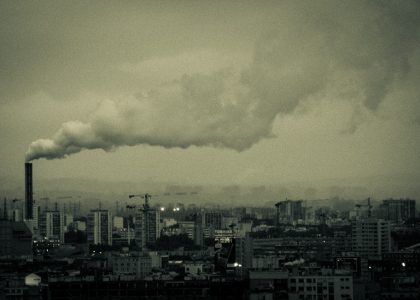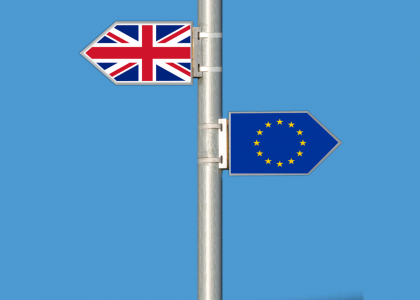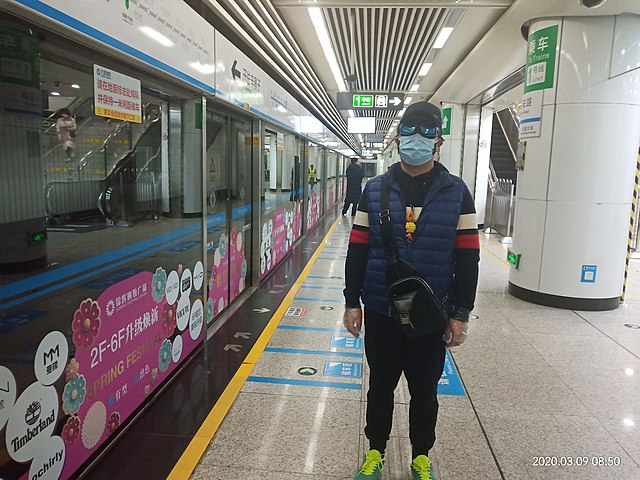My name is Alex Burov. I was born in the Ukrainian capital of Kyiv in 2000. I am a native Ukrainian speaker. My parents were directly affected by the rocket strikes in Kyiv and were forced to relocate away from the capital. I myself have experienced the Maidan protests of 2013 and have been closely monitoring the war in Donbass for 8 years of its duration as well as the annexation of Crimea. I am now a 3rd year student at UEA studying International Relations and Politics.
I woke up with a text message on the 24th of February 2022. It was from my mother and it said: “Russia invaded Ukraine today at 5 AM”. According to some reports, the Ukrainian intelligence had been ready for this invasion for several days. The 24th of February completely changed my life.
It is now nine days into the invasion. Ukrainians have become a shield for the rest of Europe. We are praised, reassured, aided, but never with enough meaningful support. The Western leaders need to realise one thing: Putin is not going to stop due to sanctions. He will only stop when he has achieved his blood-soaked goals. This is not doom-mongering, I am merely calling for meaningful action, some of which may need to entail military choices and consequences.
Ukrainians are dying. On the 4th of March the recorded losses for Ukraine are calculated as 136 people, many of whom are civilians, including as a result of rocket strikes on civilian infrastructure. Yet the real figures are calculated in the 300’s killed and 1400’s wounded by independent analysts. The change of ‘tactics’ Putin has subscribed to will continue, and will inevitably lead to more civilian deaths and destruction of infrastructure, something that the Kremlin systematically denies. Yet the war crimes keep piling high for the Kremlin. The Russian side of the conflict is even more alarming. According to some estimates from Ukrainian sources, approximately 9166 Russian soldiers have died on Ukrainian soil in only nine days of the war. The Pentagon reports that already 80% of Russian military strength is directly engaged on Ukrainian soil.
The biggest danger here appears to be disinformation. Until yesterday, no Russian bodies were collected and transported back to the country. Putin’s strategy appears to be keeping his people unaware and to escalate existing conflicts by exacerbating hateful sentiments between Ukrainians and Russians. This is in turn may reflect the reality that Putin has failed to achieve some of the early objectives of his battle plan.
The rest of the world is either intently watching the conflict or is trying to support Ukraine with whatever it can. Ukraine will probably not hold without that help. However, Putin may choose to level the country to the ground and many more civilians will die. History shows us that he is not a man that is stopped by sanctions. The pledges of military support and the commencement of a process that could see Ukrainian integration into the European Union are critical, yet they may be too slow.
The conflict-aversion of the EU and NATO has a historical background and context matters: Russia is a nuclear power. However, Putin’s rationality, which is increasingly being questioned, must also be put into context. Unfortunately, I believe that one cannot deal with any post-Soviet leader without extreme caution. Putin’s doctrine of revitalising the Soviet Union poses a significant danger to Western Europe,[1] as does Russia’s evaluation of threats to her.[2] From here stems the reckless threat of nuclear warfare and threats to existing nuclear plants in Ukraine. Just last night, March 3rd, Russian troops threatened the biggest nuclear plant in Europe, located in Enerhodar. Additionally, Mr. Putin’s tactics display increasingly questionable change, as The Times reported that Ukrainian President Zelensky has endured 3 assassination attempts so far. With all of this taken to account, the West must, I believe, respond not on paper, but in practice and with tangible pressure, which unfortunately must be conducted in line with, and proportionate to, Russian threats.
The biggest threat as it stands is the escalation of hatred between Ukraine, Russia and Belarus. The Belarusian troops have already been forced to engage in the conflict by their dictator Alexander Lukashenko. This poses a severe risk. The Russian and Belarusian people will blame Ukrainians for dispatching their men. The fact that Ukrainians are doing so in defence of their own soil is already neglected due to the immense dictatorial and propaganda pressure on the public exercised by the government apparatuses in Russia[3] and Belarus[4]. Ukrainian statehood has been historically and systematically eroded and eradicated by Russian imperialism.[5] If the West wishes to preserve their democratic values and principles of the good life, they must significantly step up to the mark and understand that they cannot simply let Ukrainians fight this war for them. This does not mean direct military engagement; Ukrainian pleas for assistance in terms of further military equipment need to be addressed urgently, and in ways that can get around the practical barriers presented by a theatre of war.
The West, I believe, also needs to give in to the calls of ‘closed skies’ over Ukraine, to prevent further civilian deaths and national hatred in the heart of Europe. The information warfare Ukraine is holding against Russia also needs major provision of aid and resources. Anonymous and Elon Musk have already risen to the challenge, however Putin is not intending to stop any time soon, or so it appears.
The inclusion of Ukraine into the European Union will most likely prove both a challenge to Europe but also a significant benefit, as it may provide more grounds for a coordinated response to Russian aggression. As well as that, the war-crime tribunal started in the Hague needs to be significantly accelerated in order to bring Putin to account over his alleged crimes against humanity.
It is possible that Ukrainians will hold with Western weapons and their warrior spirit, but the homeland defenders should not be expected to simply accept losing their lives in fighting a war that threatens the West primarily. The EU and NATO must drop the extreme conflict aversion when it comes to Russia and find the courage to truly stand shoulder to shoulder with the brave Ukrainians currently defending our shared European values and freedoms.
References:
Igor Gretskiy, Lukyanov Doctrine: Conceptual Origins of Russia’s Hybrid Foreign Policy—The Case of Ukraine., 64 St. Louis U. L.J. (2020). Available at: https://scholarship.law.slu.edu/lj/vol64/iss1/3
Stephen Blank (2008) Threats to and from Russia: An Assessment, Journal of Slavic Military Studies, 21:3, 491-526, DOI: 10.1080/1351804080231374
Plokhy, S. (2015). The gates of Europe: A history of Ukraine. Basic Books.
Helmus, T. C., Bodine-Baron, E., Radin, A., Magnuson, M., Mendelsohn, J., Marcellino, W., … & Winkelman, Z. (2018). Russian social media influence: Understanding Russian propaganda in Eastern Europe. Rand Corporation
Pershai, A. (2006). Questioning the Hegemony of the Nation State in Belarus: Production of Intellectual Discourses as Production of Resources. Nationalities Papers, 34(5), 623-635.
[1] Igor Gretskiy, Lukyanov Doctrine: Conceptual Origins of Russia’s Hybrid Foreign Policy—The Case of
Ukraine., 64 St. Louis U. L.J. (2020). Available at: https://scholarship.law.slu.edu/lj/vol64/iss1/3
[2] Stephen Blank (2008) Threats to and from Russia: An Assessment, Journal of Slavic Military Studies, 21:3, 491-526, DOI: 10.1080/13518040802313746
[3] Helmus, T. C., Bodine-Baron, E., Radin, A., Magnuson, M., Mendelsohn, J., Marcellino, W., … & Winkelman, Z. (2018). Russian social media influence: Understanding Russian propaganda in Eastern Europe. Rand Corporation.
[4] Pershai, A. (2006). Questioning the Hegemony of the Nation State in Belarus: Production of Intellectual Discourses as Production of Resources. Nationalities Papers, 34(5), 623-635.
[5] Plokhy, S. (2015). The gates of Europe: A history of Ukraine. Basic Books.





